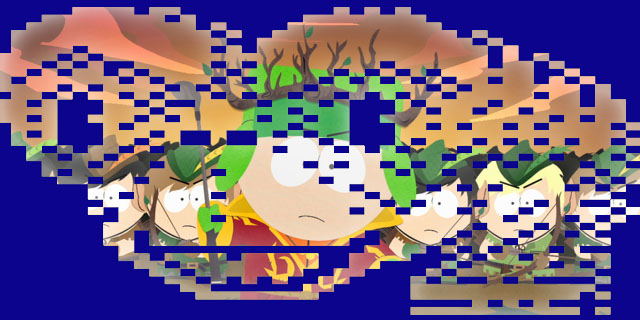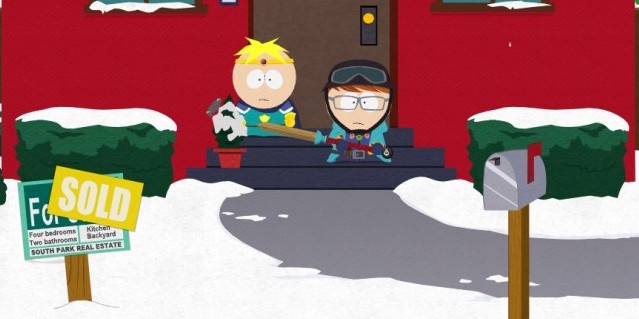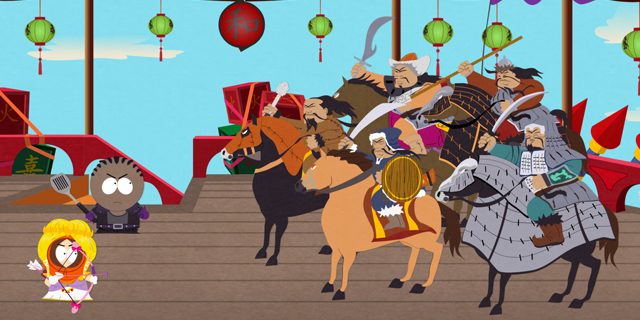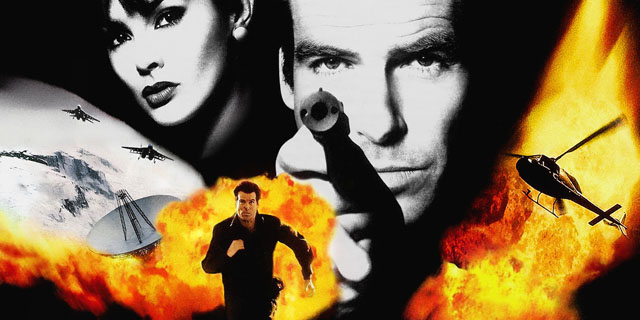
Sometimes we have no idea what we want, despite our vehement insistence that we do. This goes for nearly all aspects of life; our tastes change as the years go by, for food, friends, hobbies, athletics, television, books… you name it. Nearly everything and anything that you enjoy, perceive and think about will change as you get older. Nearly. But when it comes to some things, we stand firm and withstand any change life throws at us. We’re stubborn, even in the face of intelligent persuasion.
When it comes to games, we can be hostile to change. Beloved characters and play styles we’ve grown accustomed to are sacred to some and precious to others. But, as Henry Ford said, “If I had asked people what they wanted, they would have said faster horses.” True enough, change is sometimes good for change’s sake. A fresh style of play, or a new take on a major character can lead to a resurgence of a franchise and create a whole new type of game. However, when it comes to licensed games, there’s little room for that kind of creativity and history has shown that developers don’t get the benefit of the doubt when they make one.
The term “licensed game” is almost an obscenity among video game enthusiasts. It’s a game based on an existing property, usually a comic book, TV show or movie. Most licensed games are bad. The type of quality that is a common variable among top games isn’t there, and it’s usually not the developers’ fault. A licensed game faces a lot of factors that don’t affect a regular game’s development cycle. Executives want licensed games to complement their existing product, and it usually doesn’t help if interest in that product fades because the movie released nine months ago.

That’s the primary reason why most of them aren’t given a fair shot – unfair deadlines. Time is the greatest enemy; a rushed game is a bad game and most licensed games are rushed out the door to match the release date of the film version, or the new season of a TV show. Thankfully, the creators of South Park, Trey Parker and Matt Stone, knew this and took their time with South Park: The Stick of Truth. As a result, it might be the best licensed game to date.
A licensed game has a few disadvantages in terms of popular public opinion before they’re even launched. They have that nasty habit of being bad, so the preconceptions are unflattering to begin with. But you also have rabid fan bases and expectations of what the game should be. It has to adhere to standards of a regular game, fine, but it also has to feel like the product it’s tied into. It’s not enough for the game to be good; does it “feel” like the show? Like the movie? Like the comic book? If not, it fails. Thankfully, The Stick of Truth goes above and beyond.
It absolutely feels like the show. It looks exactly like an episode of South Park. Not a single detail is missed. If you put the TV show and the game side-by-side, they look identical, and that’s partly what makes the game work. Fans of the show wouldn’t accept anything less at this point, as the technology exists to make this a reality. Stone and Parker, also avid gamers, knew that nothing less would satisfy the public (or themselves), so they took their time with this project and later claimed that making the game was harder than writing a show, making a movie or producing a Broadway show.

The voices of Randy Marsh, Butters and Cartman aren’t close imitations; they’re the exact same voices. I’m not just playing a game – I’m playing a live version of the show. It doesn’t pull any punches, either. All the gratuitous swearing and disgusting gory bits that you’d have a chance to see in a South Park episode are here for your viewing/playing pleasure/displeasure. Trey Parker and Matt Stone did most of the writing, just like the show. The result is an experience that is both parts phenomenal and ludicrous.
In the end, it’s all about timing. Of course a rushed game is bad. If you don’t have time to properly program, draw, test and market a game, then bugs and improper occurrences are going to happen. What do you think GoldenEye 007 for the N64 would have been like had it been rushed out to meet the movie’s release date?
It hasn’t aged well, like a relative who once seemed masterful and imposing but suddenly became a lot smaller and quieter once you hit 30. Even still, it retains that charm that made you like it in the first place. It’s still one of the most influential games of all time, starting the trend of consoles as the go-to platform for first-person shooters and multiplayer. It stood on the shoulders of giants, yes, but the allure of four-player couch co-op stuck, and without it, Halo wouldn’t be what it is.

The game came out nearly two years after the GoldenEye movie. This is a licensed game that was well-received, because the developers had time to ensure the game was of high quality. To be fair, the N64 wasn’t even around when the movie came out, so it’s not like it could have matched the release date of the film. It would be a risky proposition, having a game based on a movie that’s already a few years old, but thankfully the James Bond property is timeless and will always have an audience, no matter what specific Bond license (to kill) it is based on.
The most lambasted licensed game is likely E.T. for the Atari 2600. It’s a perfect example of why most licensed games are terrible. It’s so poorly made, it’s sometimes blamed for the death of an entire industry. It’s easily one of the biggest commercial failures ever, helping Atari post a $536 million loss in 1983. Do you need a hint as to why the game was so bad?
Well, giving the job to a single person might have done it. Atari also gave him six weeks to complete it, just enough time for the game to make it onto shelves for the holiday season. Due to time limitations, Atari skipped audience testing for the product. Atari had grown bold, since many of its other successful games had been received poorly by critics, yet still sold well. E.T. ended up selling over a million copies, but Atari was so confident that it had made entirely too many copies and between two and three million sat in warehouses unsold. Many copies of the game were returned. This was only the second game based on a movie ever, and it set an incredibly poor benchmark.

It’s a shame, because there are many good licensed games. They just get a bad rap from the millions of disillusioned customers who have blindly purchased a game based on a movie because they enjoy the franchise. Imagine if E.T. had been developed with care? It’s one of the greatest sci-fi movies ever, and the game has none of the same endearing qualities. I implore you, take your time when researching games based on licenses. Usually, they’re not worth your time. But other gems, like Telltale’s The Walking Dead, the Arkham series, GoldenEye (for a trip down nostalgia lane) and of course, South Park: The Stick of Truth show that existing fondness can transfer to a controller if it’s given the care and dedication the property deserves.



















